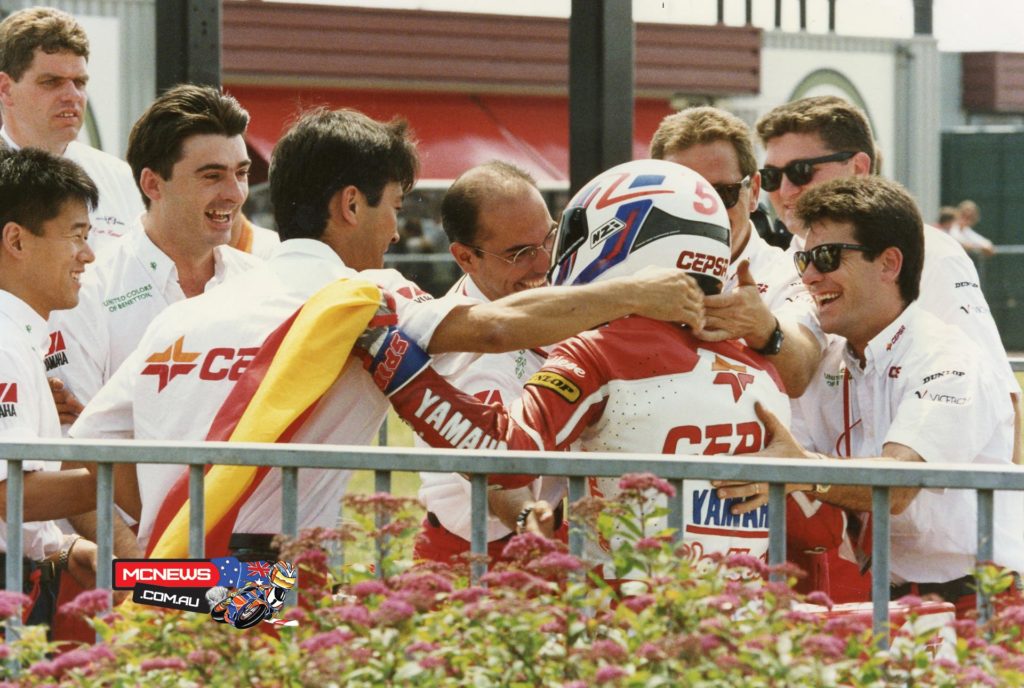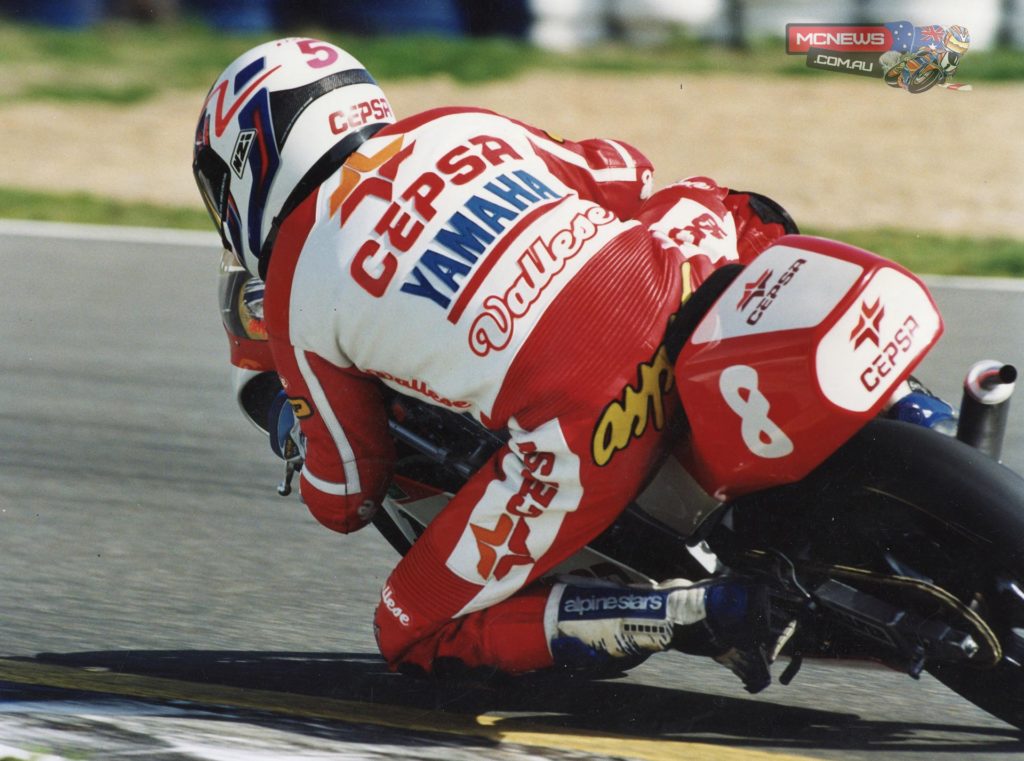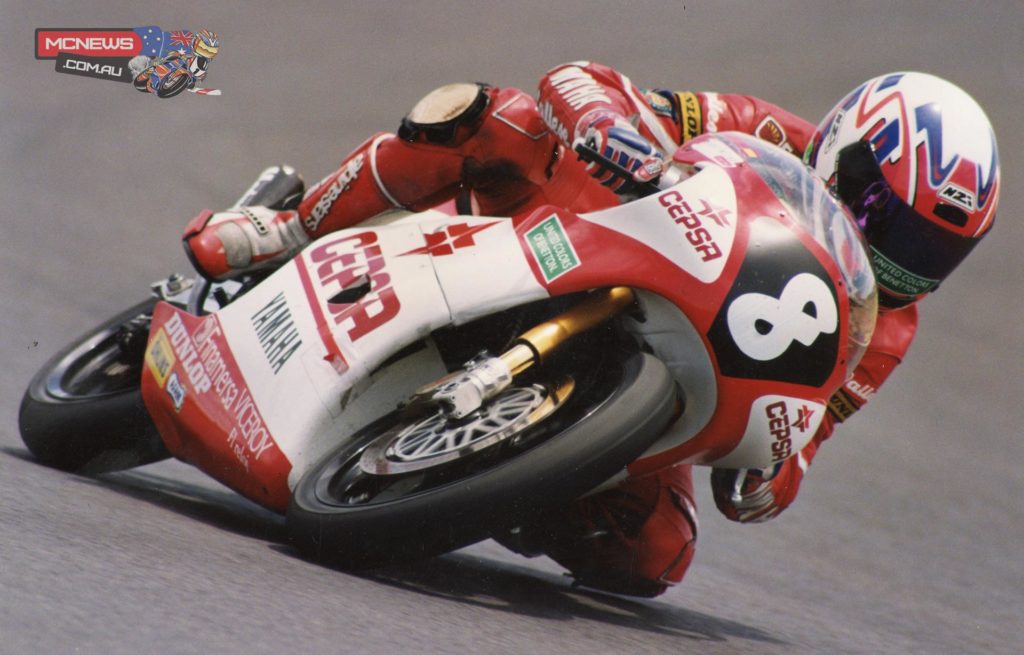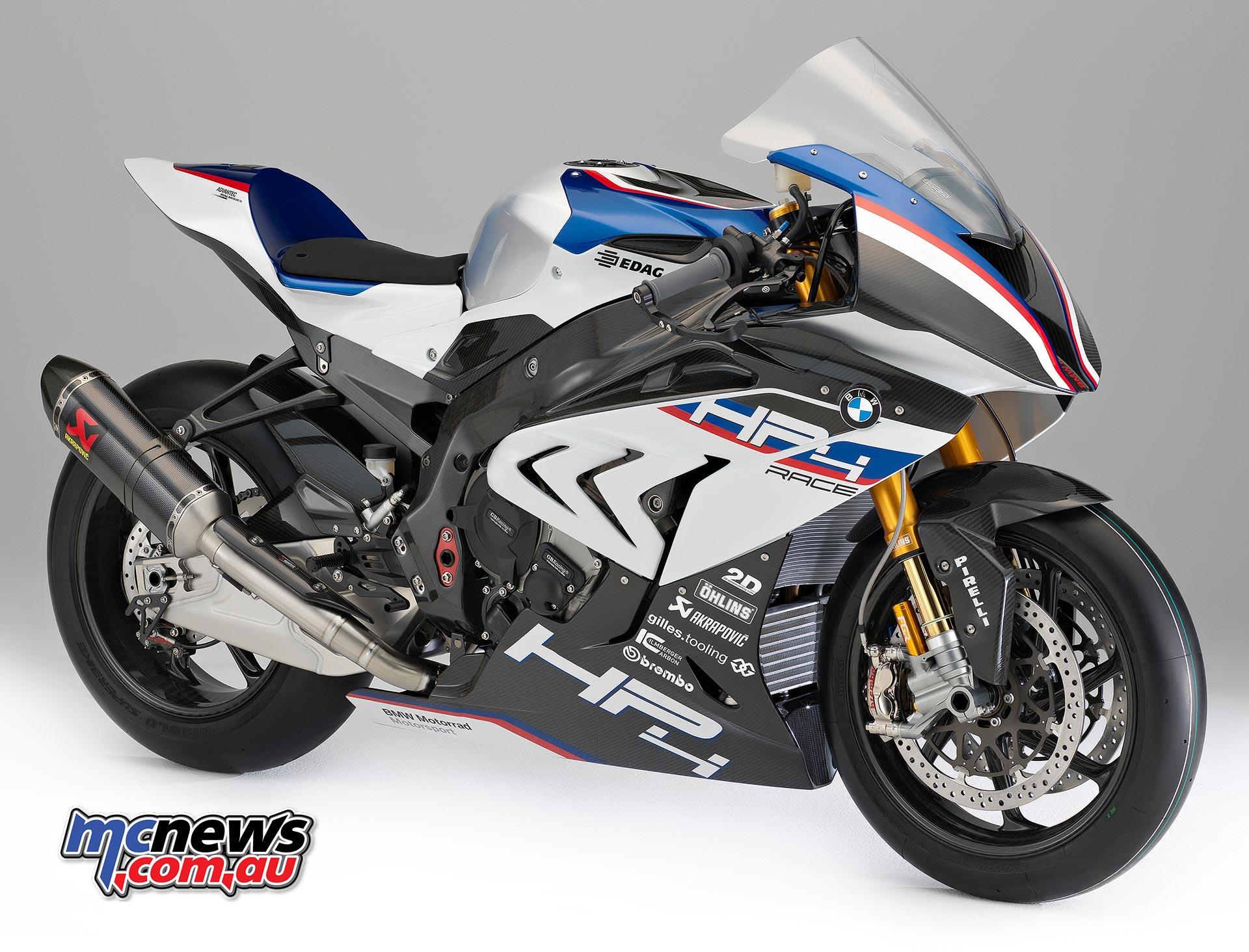“It is twenty years ago now but when I think about my races they feel like only yesterday. I can still remember which gear I took in which corner at every circuit. I even surprise myself.” These are the words of one of the greatest World Champions of all time, Jorge Martínez ‘Aspar’. This season is the twentieth anniversary of his final victory, in Argentina, a country that welcomes the return of motorcycle Grand Prix racing this weekend. Aspar’s last ever win came in the capital city of Buenos Aires, whilst this weekend’s racing takes place many miles away at the remote but spectacular Termas de Río Hondo circuit.
It is impossible for the Spanish legend to forget that moment in Argentina, the final time he stepped onto the top of a World Championship podium. Not that he knew it at the time, of course, but that win would be the cherry on the cake of an incredible career and a statistic that would go down in history. The season was 1994: “A year I remember very fondly. We did a great job, enjoyed ourselves a lot and had some good results although the victory was very hard to come by,” reflects ‘Aspar’.
Yamaha were as honest as their bikes: reliable, with good acceleration but a top speed deficit to their great rivals Honda of almost twenty kilometres per hour. It was a handicap that would prove almost impossible to overcome, even for the best rider in the world. ‘Aspar’ knew that the strength of his machine was in the chassis, perfect for the faster corners, and stable under heavy braking. If there was one thing he was good at it was braking and with certain limitations on engine performance it was clear that this would be his greatest weapon.
The GP of Argentina was the penultimate round of the season (25/09/1994) and the Japanese factory had no plans to bring any radical updates for the bike with the end of the year in sight. It was a case of getting the most out of what they had. “Back then you didn’t have the option to vary the angle of the front fork.” The only way to do it was to cut the shank that holds the front suspension and then weld it back together.
It was a drastic move that they had been considering all season – a terrible tactic according to the Japanese, a risky one worth making according to ‘Aspar’ and his crew of technicians. Going against the advice of an engineering giant like Yamaha, the week before departing for Argentina they took a saw, cut the chassis and opened the steering angle, welding it back together again.
‘Aspar’ was famed for the precision of his riding and it took him just a few laps to assess his ‘new’ chassis when practice got underway on the Friday. It was a hectic weekend, with just a few sessions to set up a new chassis and decide which tyre would work best on a track surface that was smooth but extremely slippery. Whilst the majority of riders chose a soft option to gain grip, ‘Aspar’ went for a harder compound and used his skill and feel to control the machine as it slid through the corners.
On Sunday the race gets underway and a group of five forms at the front (‘Aspar’, Ueda, Perugini, Scalvini and Alzamora), battling throughout the race until with two laps to go the Spaniard and Noboru Ueda make a break from the pack. Two of the most seasoned riders on the grid, with thousands of kilometres under their belts, use every second of their experience to pass each other twice, three, four or even five times on the final 4.350km of the race. Ueda uses the extra power of his engine to make up ground on the straights, whilst ‘Aspar’ uses every bit of track to make it up on the brakes. “He was passing me on the straights but I would get him back in the next corner. I was braking later and I had a better line than Noboru, but back then the Hondas were so fast, it was difficult to match them. It was a spectacular finish and neither of us had a clear plan.”
With two corners to go Ueda has one hand on the winner’s trophy but ‘Aspar’ has a point to prove and with one last attempt on the brakes he makes a final overtake in the final corner. In his desperation to recover a victory he thought was his, Ueda makes a desperate lunge, there is contact, but it’s too late. The race already has its winner. “That race, more than any other, it was a question of all or nothing. Winning was the only option.” As Jorge Martínez ‘Aspar’ crossed the line, a smile of satisfaction etched on his face, a well known Japanese engineer shed a tear back in the garage as his methodical, precisely engineered package was butchered and improved by a moment of improvised genius. Japanese cordiality and Latin passion embraced in parc fermé, their contrasting styles and expertise having combined perfectly to turn a supposedly inferior 125cc Yamaha into a machine capable of toppling the all-powerful Honda
He who dares wins. Aspar’s story is one of many victories – thirty-seven to be precise – in wet, dry and windy conditions on every kind of circuit imaginable. Twelve of them came with less than a second’s winning advantage, demonstrating the bravery, the tenacity and adaptability of a rider with one eye always on victory: Jorge Martínez ‘Aspar’. How could he forget that last one in Argentina? One of his greatest, and without doubt one of his most magical.



























